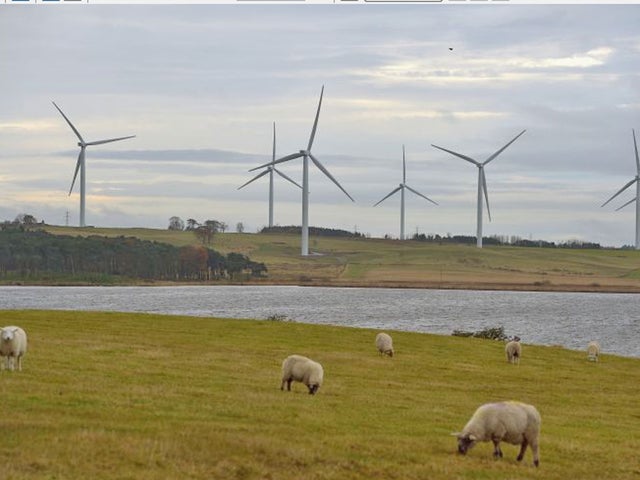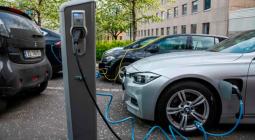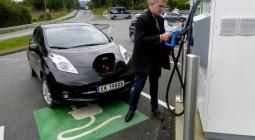Activating ‘tipping points’ in society could push world towards greater climate action, researchers say.

The rapid decline of coal-fired power in the UK and petrol cars in Norway indicate how small policy changes can lead to dramatic climate action, researchers argue.
Activating positive “tipping points” in human society could bring about faster action on the climate crisis, new research argues.
“Tipping points” are thresholds where a very small change can have a large, sometimes irreversible, effect on a system.
Scientists have previously warned that there could be a range of tipping points in the Earth’s climate that might be triggered by global heating, if actions are not taken to tackle emissions. It is feared that triggering these tipping points could lead to faster rates of climate change.
In a new commentary published in Climate Policy, researchers argue there might also be tipping points in human society that, if activated, could lead to emissions being reduced much more rapidly.
Study author Professor Tim Lenton, an expert in tipping points and director of the Global Systems Institute (GSI) at the University of Exeter, told The Independent: “What’s in common between tipping points in any complex system is the idea of where a small change leads to a large outcome.
“There are reinforcing feedbacks that can both propel a climate tipping point but also one of these positive social tipping points.”
The researchers identify two examples of where small policy changes have already led to positive social tipping points being triggered at a national level.
The first example is the rapid adoption of electric cars in Norway. Globally, electric vehicles account for 2 to 3 per cent of new car sales. However, in Norway, electric cars accounted for 54 per cent of all new vehicle sales in 2019.
Norway was able to drive a rapid shift towards electric cars by introducing policies to make them cheaper, said Prof Lenton.
“Norway has achieved a world-leading decarbonisation of their road transport through its clever policy design to make electric vehicles the same price at the point of purchase as a petrol or diesel one,” said Prof Lenton.
If similar policies were introduced in key car-producing regions such as China, the EU and California, it could lead to a global tipping point for electric vehicle uptake, he added.
“The more electric vehicles we make, the cheaper they get per unit,” he said. “That means that it gets cheaper to buy them, which again leads to them getting cheaper to make, and so on.”

(Getty Images)
The second example is the rapid disappearance of coal from the UK’s electricity generation, according to the research.
Over the past decade, the UK has cut carbon from its power supply at almost twice the pace of any other major economy. This is largely linked to a dramatic decline in the burning of coal for power in the UK over the same time period.
In the UK, the introduction of a carbon tax, alongside the falling costs of renewable power, worked in tandem to push coal into unprofitability, according to the research. This caused the use of coal-fired power, once a staple of the UK’s electricity system, to fall into rapid decline.
A global tipping point for the world’s electricity could be reached once solar and wind become more profitable than coal-fired power in all countries, according to the research.
The paper encourages country leaders to introduce new policies to harness the potential of positive tipping points in human society.
“Everybody and their dog is setting a net zero target for around the middle of the century,” said Prof Lenton.
“If you want to follow through on that, you've got to accelerate the transition away from fossil fuels. This could be a tangible way to try to do that.”
11 January 2021
INDEPENDENT




